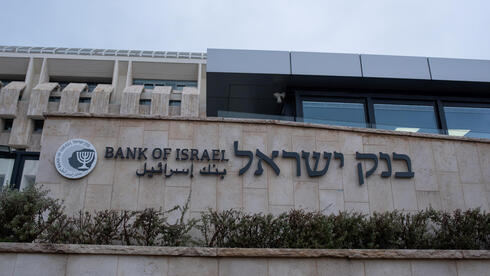The Bank of Israel kept short-term interest rates unchanged on Monday, maintaining a cautious policy stance as inflation eased further in August but economic uncertainty deepened amid the two-year-old war with Hamas in Gaza.
The central bank left its benchmark rate at 4.5% for the 14th straight meeting, meaning the popular prime lending rate remains at 6%. Its last move was a 25-basis-point cut in January 2024, when inflation cooled and growth slowed in the early days of the war.
Governor Amir Yaron and the monetary committee had debated a first rate cut in 21 months, but as most analysts expected, the decision was delayed. Economists now believe the earliest move could come in November or even in early 2026.
The decision was published just two hours before Prime Minister Benjamin Netanyahu was scheduled to meet U.S. President Donald Trump to discuss the Gaza war. Some critics argued Yaron should have waited to factor in the outcome of the talks before announcing his policy decision.
At a press conference, Yaron stressed that “the war leaves a significant mark on the economy, which continues to operate in an environment of great uncertainty.” He warned inflation may soon climb back above the government’s 1% to 3% target range. “Economic conditions do not yet justify a rate cut,” he said.
Asked about Netanyahu’s recent “Sparta speech,” in which the prime minister suggested Israel must harden itself as a fortress state, Yaron replied that Israel “cannot and does not want to be a closed economy. We are a small and open economy. It is important to maintain foreign trade ties, and recent data actually showed an improvement in exports.”
Finance Minister Bezalel Smotrich had recently pressed Yaron to cut rates, warning that otherwise he would move to lower taxes. Yaron dismissed that approach, saying: “Cutting taxes without lowering interest rates is like drinking espresso after taking a sleeping pill.”
Weaker economic outlook
Alongside its rate decision, the Bank of Israel published a downgraded economic forecast, citing the prolonged conflict and Israel’s increasing international isolation. It now expects GDP to grow just 2.5% in 2025, down from a 3.3% forecast in July. Growth is projected to rebound to 4.7% in 2026, assuming the Gaza war ends in the first quarter of that year.
Inflation is projected to average 3.0% in 2025—above target—and then fall to 2.2% in 2026. The central bank expects its key rate to gradually decline to 3.75% by the third quarter of 2026.
Israel’s annual inflation slowed to 2.9% in August from 3.1% in July, returning within the government’s target range for the first time in months. Still, seasonal factors, including a sharp rise in holiday airfare, could push the index higher again in the coming months.
Despite falling U.S. and European interest rates, Israel remains the only advanced economy that has not cut since early 2024. Yaron’s caution is driven in large part by the ballooning costs of the Gaza war, which have already pushed the fiscal deficit to 5.2% of GDP.

